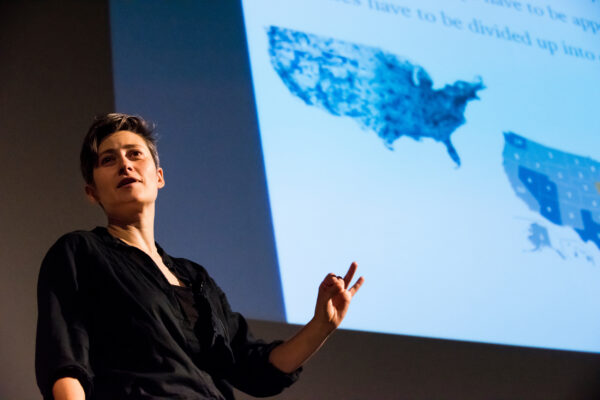Moon Duchin (Tufts) – Data, Democracy, and Civil Rights
Who gets to govern? How do we choose? In a big, complicated country with a rich spectrum of identities and political preferences, we have many decisions to make about systems and structures for making every vote count towards meaningful representation. I’ll tell stories from collisions of math, geography, law, and policy in contemporary American elections, and will sketch out some of the past and future of data science for civil rights.

Bio: Moon Duchin is a Professor of Mathematics, a Senior Fellow in the Tisch College of Civic Life, and recently finished a term as Director of the Program in Science, Technology, and Society at Tufts University. Her pure mathematical work is in geometry, topology, groups, and dynamics. Her applied work includes collaborations with civil rights organizations, data scientists, political scientists, lawyers, and geographers on large-scale projects in elections and redistricting. She has recently provided expert reports and/or testimony in redistricting litigation in Wisconsin, North Carolina, Alabama, South Carolina, Pennsylvania, Texas, and Georgia.
Professor Duchin concentrated in mathematics and women’s studies at Harvard and received her PhD in mathematics from the University of Chicago. Her work has been recognized with an NSF CAREER grant, a Guggenheim Fellowship, and a Radcliffe Fellowship, and she is a Fellow of the American Mathematical Society. She has been a Distinguished Lecturer for the MAA and has been invited as the Porter Lecturer and the Einstein Lecturer by the AMS.